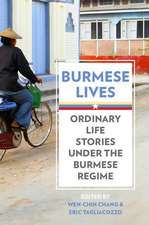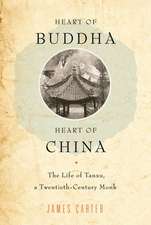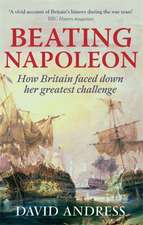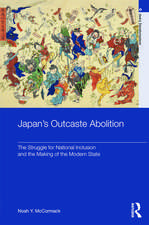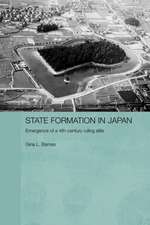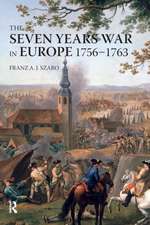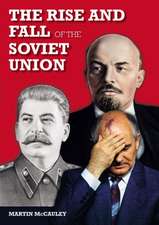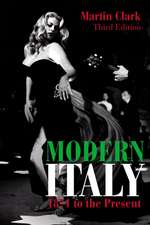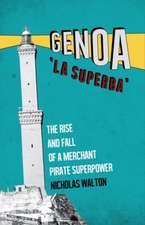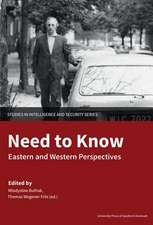Ataturk: Profiles In Power
Autor Alexander Lyon Macfieen Limba Engleză Paperback – aug 1994
| Toate formatele și edițiile | Preț | Express |
|---|---|---|
| Paperback (1) | 489.26 lei 6-8 săpt. | |
| Taylor & Francis – aug 1994 | 489.26 lei 6-8 săpt. | |
| Hardback (1) | 997.93 lei 6-8 săpt. | |
| Taylor & Francis – 9 feb 2015 | 997.93 lei 6-8 săpt. |
Din seria Profiles In Power
-
 Preț: 324.68 lei
Preț: 324.68 lei - 8%
 Preț: 404.43 lei
Preț: 404.43 lei -
 Preț: 312.22 lei
Preț: 312.22 lei -
 Preț: 339.91 lei
Preț: 339.91 lei -
 Preț: 222.36 lei
Preț: 222.36 lei - 16%
 Preț: 273.85 lei
Preț: 273.85 lei -
 Preț: 388.07 lei
Preț: 388.07 lei -
 Preț: 214.82 lei
Preț: 214.82 lei -
 Preț: 185.66 lei
Preț: 185.66 lei - 18%
 Preț: 999.51 lei
Preț: 999.51 lei - 18%
 Preț: 999.34 lei
Preț: 999.34 lei -
 Preț: 390.74 lei
Preț: 390.74 lei - 18%
 Preț: 997.77 lei
Preț: 997.77 lei -
 Preț: 484.47 lei
Preț: 484.47 lei - 15%
 Preț: 421.47 lei
Preț: 421.47 lei -
 Preț: 215.07 lei
Preț: 215.07 lei - 18%
 Preț: 1000.27 lei
Preț: 1000.27 lei -
 Preț: 410.50 lei
Preț: 410.50 lei - 13%
 Preț: 296.68 lei
Preț: 296.68 lei -
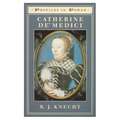 Preț: 415.24 lei
Preț: 415.24 lei -
 Preț: 245.57 lei
Preț: 245.57 lei - 15%
 Preț: 439.56 lei
Preț: 439.56 lei - 15%
 Preț: 455.33 lei
Preț: 455.33 lei - 13%
 Preț: 295.92 lei
Preț: 295.92 lei -
 Preț: 228.25 lei
Preț: 228.25 lei - 18%
 Preț: 998.40 lei
Preț: 998.40 lei -
 Preț: 270.67 lei
Preț: 270.67 lei - 18%
 Preț: 997.93 lei
Preț: 997.93 lei -
 Preț: 442.32 lei
Preț: 442.32 lei - 15%
 Preț: 420.97 lei
Preț: 420.97 lei -
 Preț: 414.70 lei
Preț: 414.70 lei -
 Preț: 476.09 lei
Preț: 476.09 lei - 15%
 Preț: 421.13 lei
Preț: 421.13 lei - 16%
 Preț: 248.79 lei
Preț: 248.79 lei -
 Preț: 408.00 lei
Preț: 408.00 lei - 15%
 Preț: 457.80 lei
Preț: 457.80 lei
Preț: 489.26 lei
Preț vechi: 575.60 lei
-15% Nou
Puncte Express: 734
Preț estimativ în valută:
93.62€ • 100.11$ • 78.06£
93.62€ • 100.11$ • 78.06£
Carte tipărită la comandă
Livrare economică 17 aprilie-01 mai
Preluare comenzi: 021 569.72.76
Specificații
ISBN-13: 9780582078635
ISBN-10: 0582078636
Pagini: 228
Dimensiuni: 138 x 216 x 13 mm
Greutate: 0.45 kg
Ediția:1
Editura: Taylor & Francis
Colecția Routledge
Seria Profiles In Power
Locul publicării:Oxford, United Kingdom
ISBN-10: 0582078636
Pagini: 228
Dimensiuni: 138 x 216 x 13 mm
Greutate: 0.45 kg
Ediția:1
Editura: Taylor & Francis
Colecția Routledge
Seria Profiles In Power
Locul publicării:Oxford, United Kingdom
Cuprins
Preface.
Introduction.
1. The Making of Mustafa Kemal: Acquisition of Power.
2. Early Career.
3. Moment of Decision.
4. Foundation of the National Movement.
5. Relations with Istanbul.
6. Civil War.
7. War.
8. Modernization, Westernization and Reform.
9. Politics, Opposition and Conspiracy.
10. The Closing Years.
Conclusion.
Further Reading.
Chronology.
Index.
Introduction.
1. The Making of Mustafa Kemal: Acquisition of Power.
2. Early Career.
3. Moment of Decision.
4. Foundation of the National Movement.
5. Relations with Istanbul.
6. Civil War.
7. War.
8. Modernization, Westernization and Reform.
9. Politics, Opposition and Conspiracy.
10. The Closing Years.
Conclusion.
Further Reading.
Chronology.
Index.
Descriere
This concise account of the life and career of Mustafa Kemal Atatürk (1881--1938), the formidable "founder of modern Turkey", offers a substantial revaluation of a key figure in modern history, and also an introduction to the Turkish republic itself. It is a timely study with Turkey again at the centre of international attention, as Islamic fundamentalists challenge many of Atatürk's westernising and secularizing reforms, and as the regional aftershocks of the Soviet collapse reopen profound questions about Turkey's nature, role and relationships Atatürk had sought to settle for good.

